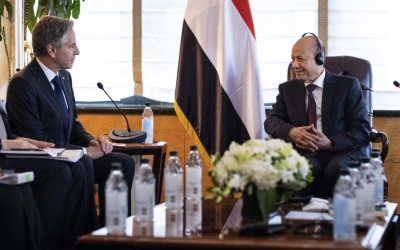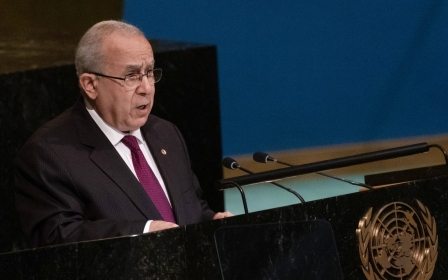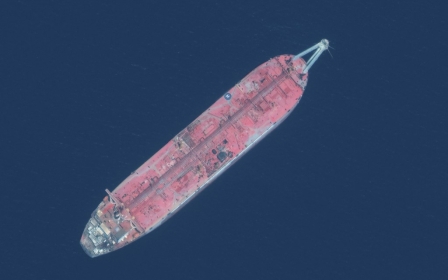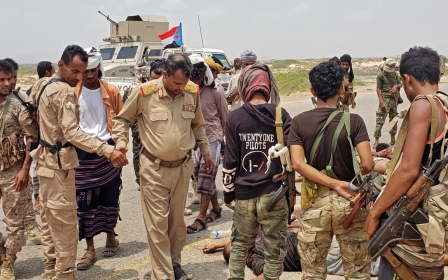Yemen ceasefire ends without extension as UN envoy urges calm
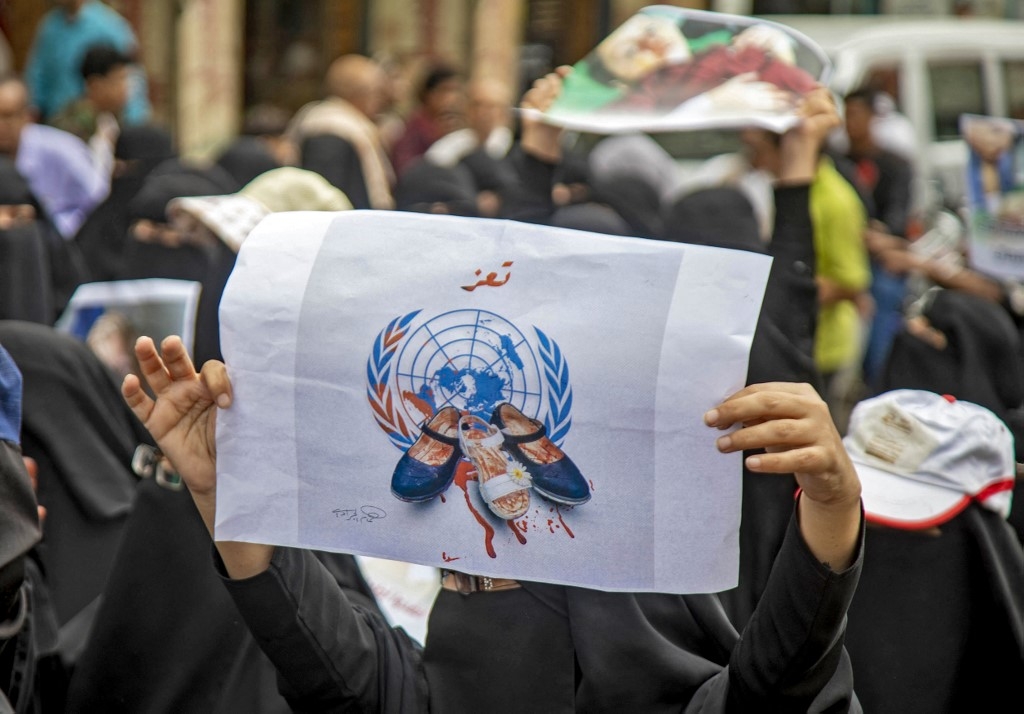
A six-month truce in Yemen's war between Iran-backed Houthi rebels and a Saudi-led coalition expired on Sunday without being extended, the United Nations' special envoy said, urging calm and adding that negotiations were continuing.
Hans Grundberg said efforts to extend and expand the ceasefire for a further six months had not been successful ahead of Sunday's deadline.
"The UN special envoy regrets that an agreement has not been reached today, as an extended and expanded truce would provide additional critical benefits to the population," a statement said.
"I urge [the warring parties] to fulfil their obligation to the Yemeni people to pursue every avenue for peace," the Swedish diplomat was quoted as saying.
The conflict that started in 2014 has left hundreds of thousands dead and created what the United Nations has called the world's worst humanitarian crisis with widespread malnutrition and disease.
The ceasefire had twice been renewed since 2 April.
The rivals have faced international calls to extend the measure, including from UN Secretary-General Antonio Guterres, and even the United States and Russia came together at the UN Security Council to back the ceasefire.
Last month, US Secretary of State Antony Blinken reaffirmed his call for an extension of the truce after meeting with Rashad al-Alimi, chairman of the Yemeni Presidential Leadership Council (PLC), in New York.
"I think it's fair to say that the truce, whose effects are being felt throughout Yemen, has made a profound difference in improving people's lives,” Blinken said, “and your own leadership in working to sustain that truce has made a huge difference.”
Grundberg has shuttled between Sanaa and Oman, which has acted as a mediator, in a bid to secure an extension.
On Sunday, he met in Riyadh with Alimi, the Yemeni news agency SabaNet reported.
The Norwegian Refugee Council, an aid group active in Yemen, said the failure to renew the truce was "deeply disappointing".
"It is a missed opportunity to help millions of Yemeni civilians out of the brutal conflict that the warring parties have dug the country into," said country director Erin Hutchinson.
Ceasefire at 'dead end'
Houthi leader Mehdi Mashat told a political meeting in Sanaa that the UN proposals did "not meet the aspirations of the Yemeni people", the rebels' al-Massira TV reported.
Sporadic clashes were reported on Sunday in southwest Yemen, as coalition military sources told AFP the Houthis had sent reinforcements to the region.
The Houthis said in a statement on Saturday that the ceasefire was at "a dead end".
'Over the past six months, we haven't seen any serious willingness to address humanitarian issues as a top priority'
- Houthi statement
"Over the past six months, we haven't seen any serious willingness to address humanitarian issues as a top priority," the statement said, accusing the coalition of failing to agree on measures to "alleviate the suffering of the Yemeni people".
On Sunday, the Houthis, who have launched deadly drone and missile attacks on Saudi Arabia and coalition member the UAE in the past, issued a warning to both countries.
"The [Houthi] armed forces give oil companies operating in the UAE and Saudi Arabia an opportunity to organise their situation and leave," Houthi military spokesman Yahya Saree tweeted.
"Forewarned is forearmed," he added, calling for a "truce that gives the Yemeni people the right to exploit their oil wealth in favour of the salary of the Yemeni state employees".
Lives dramatically improved
The lull in fighting had led to a 60 percent reduction in casualties while fuel imports into the Houthi-held port of Hodeidah have quadrupled, humanitarian groups said on Thursday.
Sanaa residents say their daily lives have dramatically improved. Prices have come down as more essential goods entered the city, even though key roads remain shut.
About 23.4 million of Yemen's 30-million population rely on humanitarian aid.
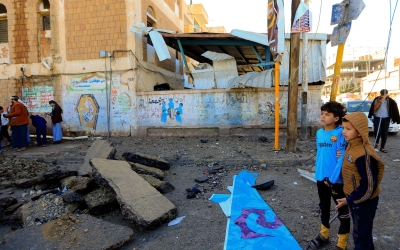
While the truce has largely held, the Houthis and the coalition blame each other for reported violations.
A siege remains in place on Taiz, Yemen's third city, which is controlled by the government but surrounded by Houthi forces.
Yemen descended into civil war in 2014, when the Houthi movement seized the capital, Sanaa, forcing the internationally recognised government to flee to Saudi Arabia. Riyadh and a coalition of regional allies, chiefly the UAE, intervened in March 2015 to push the Houthis back.
Seven years of fighting has failed to dislodge the Houthis, who control northern Yemen and about 80 percent of the country’s population, along with major urban centres.
The April truce came after some of the most bitter fighting, as the Houthis attempted to take the strategic city of Marib. The coalition held them off and reorganised its forces to go on the offensive in Shabwah, where it dealt the Houthis a rare defeat.
Middle East Eye delivers independent and unrivalled coverage and analysis of the Middle East, North Africa and beyond. To learn more about republishing this content and the associated fees, please fill out this form. More about MEE can be found here.


